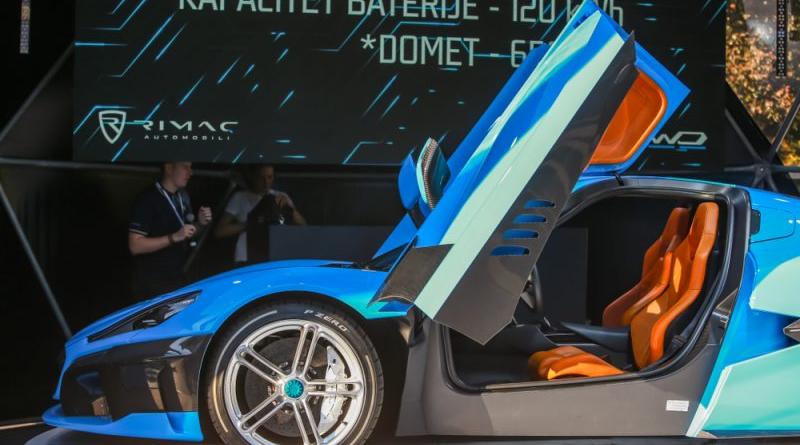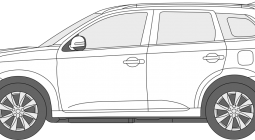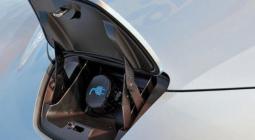Green tech expert: ‘Car ownership is nonsense’

The sharing economy can kill two birds with one stone by lowering the cost of green technologies and reducing polluting emissions, cleantech expert Radoslav Mizera told EURACTIV Slovakia.
Radoslav Mizera is vice-president and Chief Innovation Officer at Solved, a cleantech advisory service connecting green firms and smart city experts with governments and companies.
Last year, EU institutions agreed on new CO2 emission standards for cars and vans, and discussions are ongoing about limits for heavy-duty vehicles. The EU’s Energy Union Commissioner Maroš Šefčovič says the new rules will force the car industry to modernise and become more competitive on the world market. But others doubt the ability of carmakers to adapt. What do you think?
I agree with Mr Šefčovič. It can be done. The Croatian company Rimac Automobili founded by Mate Rimac is a good example. He is extremely innovative. He is considered a technological leader in his field. He focuses exclusively on sports cars, but his technologies can impact other industries as well. And they are spreading thanks to cooperation with other carmakers.
This example shows us, that even countries like Croatia can make the difference on a global level. It is very important to have leaders like this in Slovakia as well.
Will strict emission limits help the car industry’s competitiveness?
Yes, because they can pave the way for alternative producers that are coming to the market with innovations.
During the past ten years, China strongly supported “new energy vehicles”. Now, China is on the verge of becoming the global leader in this field. That is the so-called global competition that is threating our own industries.
If we do not realise this, Chinese carmakers will outcompete ours. In the next ten years, we will see massive development of e-mobility.
If we do not adapt, will we end up buying Chinese e-vehicles in Europe?
It’s possible, yes. One reason for modernising car manufacturing is boosting local production. Another is global competitiveness. The third and possibly most important reason is the ongoing shift in business models. It is not about cars as such anymore. It is about the charging infrastructure having an important position in the energy sector, because it is part of smart grids.
More importantly, we will see a transition to the shared economy. In the future, we will not own cars. Judged by efficiency, it is nonsense. Up to ten people can share one vehicle. The car industry argues that car making is expensive and difficult, that they don’t have enough production inputs for such a high number of cars. But why would they need to produce so many of them?
Are consumers ready to accept that car ownership doesn’t make sense?
Maybe they will naturally come to that conclusion on their own. They will find out that not owning an automobile is more comfortable and cheaper. It will be a rational consumer decision. It just doesn’t make sense to pay ten times more for transport just because I want to own a car.
In the future, car ownership could end up being only reserved for super-luxury vehicles and super-rich people. But considering efficiency, it is definitely not the way to go. Transport networks will be optimised, emissions will be cut down. Sharing will allow cheaper and less time-consuming transport. Shared costs will make the way for new technologies.
Yet cities should allow mobility solutions, in which walking comes first, bicycles and scooters second and public transport third. Cars should only come in fourth place.
You argue for carbon and air pollution taxes, like in Nordic countries. But can countries like Slovakia compare with the likes of Norway, given the difference in purchasing power?
Timing is crucial. Taxation should be progressive in time and espouse the price decrease trend of e-vehicles. European carmakers are making plans to ramp up production of e-vehicles.
European carmakers invest more into e-vehicles production in China than in Europe.
The reason is that today the added value in the car industry is created increasingly in the supply sector rather than in the final production, the assembly lines. Given the Chinese support for this industry in the past ten years, there is a growing supply base incentivising investments from the European carmakers.
The average car age in Slovakia is 14 years. This means we have a very old car fleet. Slovakia should therefore seek ways to renew it. The sharing economy is part of the solution. It will allow us to supply services with much less input. Addressing both costs and emissions, we will kill two birds with one stone.
You also focus on smart cities and regions. Isn’t ‘smart city’ an empty marketing catch phrase these days?
The term has often been used as a label for technical solutions. In the first place, a smart city or a smart region is not about technical solutions, but about specific aspects of cooperation between various interest groups. It is a city or a region with a transparent public governance and with an efficient public procurement of new solutions. It provides access to its data and involves citizens in decision making.
Our company is trying to connect cities and experts, so that their decisions become more professional than political. International solutions can be adapted to local conditions. Correcting bad decisions is much more expensive than investing into qualified knowledge. That’s true also for public procurement.
For example, San Diego in California invests a lot into renewables and energy storage. It asked us to create an independent expert panel which can evaluate a public procurement. The panel helped to choose the best offer. Cities today don’t have expert capacities to solve complex problems.
25 January 2019
Pavol Szalai
![]()




